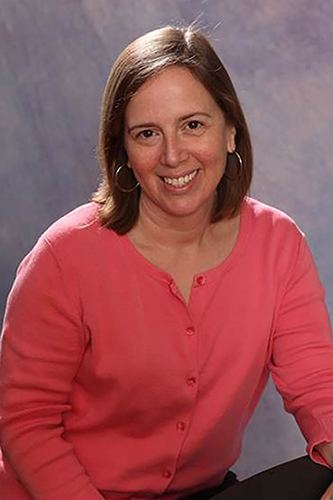Patient Supports the Search for Solutions, Cure for RA
 “My kids distract me while I do my injections. They’ll do a funny dance so I don’t have to focus too hard on the needle.” For Melissa Young, that one statement encompasses the biggest factors in her life: her 11-year-old twins and, after that, her rheumatoid arthritis (RA). Melissa has settled into the “new normal” of life with RA. However, her road to diagnosis and treatment has been long, and she’s preparing for the future rough patches that come with chronic pain. Melissa hopes support for the Rheumatology Research Foundation will provide her and others with rheumatic diseases better solutions to face future obstacles.
“My kids distract me while I do my injections. They’ll do a funny dance so I don’t have to focus too hard on the needle.” For Melissa Young, that one statement encompasses the biggest factors in her life: her 11-year-old twins and, after that, her rheumatoid arthritis (RA). Melissa has settled into the “new normal” of life with RA. However, her road to diagnosis and treatment has been long, and she’s preparing for the future rough patches that come with chronic pain. Melissa hopes support for the Rheumatology Research Foundation will provide her and others with rheumatic diseases better solutions to face future obstacles.
Melissa’s pain began more than a decade ago when she started having issues with her knee. Over the years, she went to an orthopedist for on-and-off pain and had multiple surgeries. Through the whole process, Melissa’s doctor tested her regularly for autoimmune diseases, but the results always came back negative. Eventually, the pain spread to her ankles.Once her wrists became so bad she could barely hold a dinner plate at times, she and her orthopedist agreed it was time for her to see a rheumatologist, who finally diagnosed her with RA. “I’d never once considered that anything like this would happen, where I was told I have a disease I’m going to have to manage for the rest of my life,’” she says. “It was really overwhelming, but at the same time, it was the first time in 10 years I felt like this is something that we can address.”
She says treatment has helped control her RA, but the disease still changes the way she lives her life. “I’m constantly aware of at least some part of my body that I used to just not have to worry about.” Melissa’s RA impacts the small decisions she has to make in everyday life, such as using a headset while on the phone because holding it gets too painful. “It’s a new normal, not just knowing your body and the comfort and discomfort, but also in how you plan your life,” Melissa explains. “It’s not just little decisions like not buying an 18 pound turkey because I have a hard time lifting it onto the table. It’s also big decisions about where I’m going to live and what job I’m going to do.” While house hunting and looking at two- and three-story homes, she realized her RA would eventually prevent her from being able to use all the stairs. As a result, she decided a split-level house with only a few stairs would be more practical while still fulfilling her wish list.
Melissa also made changes to the organizations she supports because of her RA. “I’m going to be on these medications for the rest of my life, and I don’t like that,” she says. “I need somebody who’s going to find a solution for my problems.” Melissa used Charity Navigator, the nation’s largest evaluator of charities, to find organizations she was interested in supporting. With a four-star rating, the highest offered from Charity Navigator, she discovered the Rheumatology Research Foundation. The more research Melissa did into the Foundation, the more confident she became that this was the organization she wanted to support. “It’s tangible what the Foundation is doing. They’re actually showing strides in a direction toward finding better solutions.”
On the Foundation’s Giving Day in honor of its 30th anniversary, Melissa made her first donation. “To support the Foundation, which is trying to advance the field and find a better solution for us, just seems like a no-brainer.” She says her gift to the Foundation provides a chance to make a difference in the lives of people with rheumatic diseases. “I’m so happy the Foundation is supporting the work it is. I hope that there are breakthroughs in managing rheumatoid arthritis and, ultimately, a cure.”